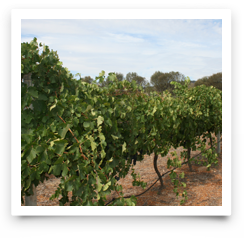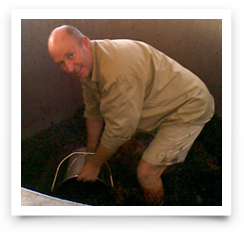 It is an almost universally held belief in the wine industry that quality and quantity are related. Great wines can only be produced from vineyards yielding low quantities of fruit, and conversely high yielding vineyards would produce low quality grapes.
It is an almost universally held belief in the wine industry that quality and quantity are related. Great wines can only be produced from vineyards yielding low quantities of fruit, and conversely high yielding vineyards would produce low quality grapes.
There is ample empirical evidence to suggest such a relationship is true, with most of the world’s vin ordinaire grown in relatively high yielding vineyards. Many famous wines are grown in old vineyards where yields are low. In Australia a low yield would be considered less than 3 tonnes per acre, whilst a high yield would be around 10 tonnes per acre. Western Australia’s 5 year average yield is 3 tonnes per acre whilst the yield in South Australia’s Murray Valley is 9.5 tonnes per acre. The French believe yields below 3 tonnes per acre are necessary to make great wine. Whilst there is clearly a connection between yield and wine quality, it is a generalisation and low yielding fruit from unhealthy vines or other causes would not produce great wine.
In Australia at least, this theme that low yields equate to high quality then seems to morph into the concept that adversity is a prerequisite for great wine, and commerciality is often seen as incompatible great winemaking. So we have some winemakers at pains to demonstrate how miserable their existence is, that they have no thought of profit, and that they are in fact doing their penance at the altar of great wine. This is garbage and in complete contrast to the French example, of great chateaus and luxury associated with great wines.
At Faber we aim to make the most attractive wines possible that are a reflection of our vineyard and its location, and our experience. This is what the French call terroir. Simply put we want to get the best out of our vineyard and ourselves. Whether or not our wines are great is something which can only be demonstrated over many vintages. If they are it will be because they have a level of intensity, a complexity of flavours, a consistency from vintage to vintage, and an ability to mature and change and improve over many years. It won’t be because we have worn sack cloth and ashes.
The wine business is a difficult one. It combines farming, production, marketing and sales. It is an extremely competitive industry, where even the smallest must compete with the largest. It is capital intensive, has very long lead times, requires huge stock levels, means long hours and weekends working, and demands a high level of expertise. But one shouldn’t confuse the hard work of running a successful wine business with the process of making great wine.
 Making great wine isn’t a hardship, it’s a joy. Great wine is the application of winemaking craftsmanship to wonderful fruit. Don’t be fooled by the idea that a winemaker has to struggle to achieve. A winemaker has to learn to achieve! A winemaker must seek to make great wine – they must understand the science and have the skills, understand the great wines of the world, and have practiced and gained experience. And then after a number of vintages the critics and wine lovers may conclude their wines are great.
Making great wine isn’t a hardship, it’s a joy. Great wine is the application of winemaking craftsmanship to wonderful fruit. Don’t be fooled by the idea that a winemaker has to struggle to achieve. A winemaker has to learn to achieve! A winemaker must seek to make great wine – they must understand the science and have the skills, understand the great wines of the world, and have practiced and gained experience. And then after a number of vintages the critics and wine lovers may conclude their wines are great.
So we don’t assume our wines are great. We do as well as we can. We don’t conclude that hard work equates to great wine. Hard work is a given in the wine business, whether our wines are good or bad.
Are our wines great wines – it is far too early to consider. Are they attractive flavoursome wines? That we already know. As our wines come into their second decade we will have the chance to review some of our older vintages and judge how they have matured. But it isn’t up to us – others will decide for us. And it won’t be because we are miserable!
